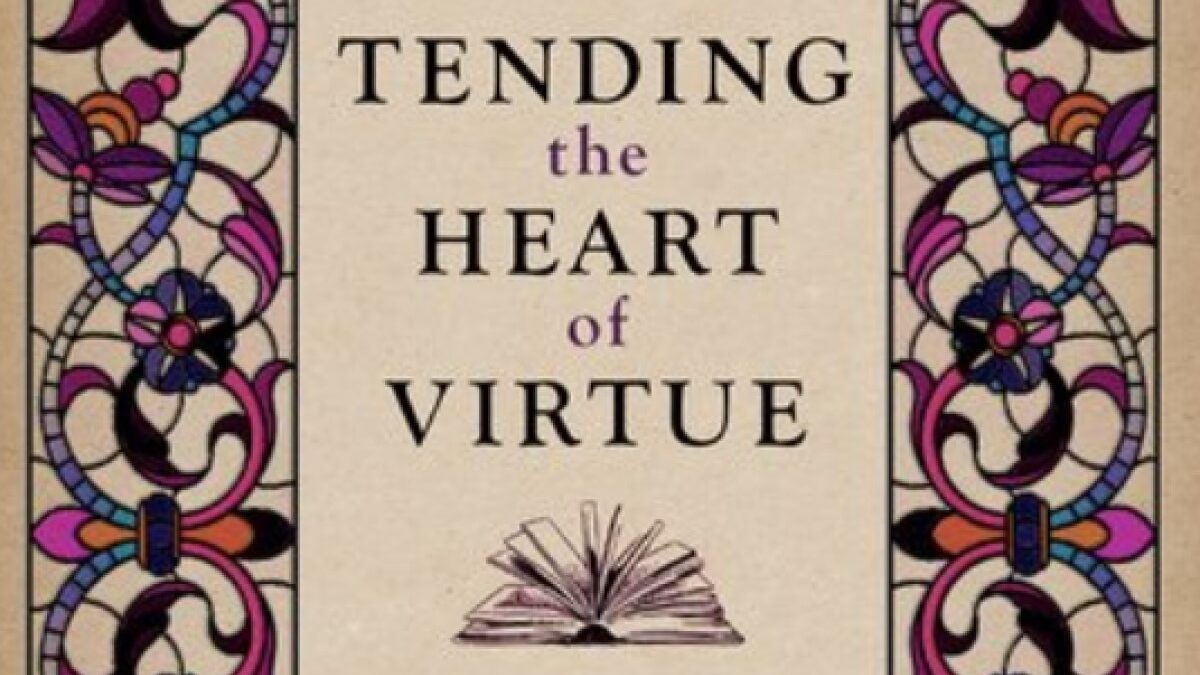
If this new year is anything like 2017, we can expect more of the same: high-octane political quarrels, nasty public feuds, and the bane of many attempted productive work days and aspired leisurely evenings: controversial online articles and their commensurate comboxes.
These are often ground-zero for some of the lowest, most base forms of human interaction. Many of us complain about social media’s negative effects on communication, yet we often allow ourselves to be dragged into those same pits of spiraling degradation, even if as amused witnesses.
If we have any inclination to add “improved Internet behavior” to our New Year’s resolution list, three intellectual giants of our past can help guide us into becoming better readers and communicators. The first of our guides is that greatest of Italian poets, the thirteenth- and fourteenth-century Florentine poet, Dante Alighieri.
A Quick Refresher on Dante
Most of us hopefully have at least at some basic knowledge of Dante, if nothing else having been exposed to a canto or two of his “Divine Comedy” in a high-school English or university history course. The Italian statesman and poet has received renewed interest, particularly in the wake of a book by prolific conservative writer Rod Dreher of Benedict Option fame, the 2015 “How Dante Can Save Your Life.”
Dante was himself a prolific writer, composing important medieval treatises on philosophy and politics, and writing widely hailed love poetry. Yet he is most famous for that great trilogy, the “Inferno,” “Purgatorio,” and “Paradiso,” a poetic reflection on an imagined trip through the afterlife that became fundamental to creating the contemporary Italian language, much as Shakespeare and the King James Bible gave us modern English. Over the course of 100 cantos, or short poems of 100-plus lines, Dante masterfully communicates an imagined afterlife that is beautiful, terrifying, and highly instructive.
Here we will consider Canto XIII of the “Paradiso,” during which Dante becomes a theological student of the great St. Thomas Aquinas. The commanding theme of this canto is the acquisition and preservation of human wisdom, St. Thomas guiding Dante through reflections on Adam, Solomon, and Christ.
At the end of this soliloquy, Aquinas provides Dante a series of warnings regarding attaining wisdom, particularly on forming proper judgments. Dante, using a fictitious portrayal of St. Thomas as his mouthpiece, provides us three important lessons about developing our own opinions.
Be Slow To Form Your Opinions
Beginning in line 112 of Canto XIII of the “Paradiso,” Saint Thomas urges Dante:
Let this be leaden weight upon your feet
To make you move slow as a weary man
Both to the ‘yes’ or ‘no’ you do not see
For he ranks low, indeed, among the fools,
Who rushes to affirm or to deny,
No matter which, without distinguishing.
Opinions formed in haste will oftentimes
Lead in a wrong direction, and man’s pride
Then intervenes to bind his intellect.
Worse than useless it is to leave the shore
To fish for truth unless you have the skill;
You will return worse off than when you left.
Here Dante admonishes us about the risk of forming judgments before we are well studied in the complexities of a subject. I can remember in high school and college how desperately I wanted to be able to speak authoritatively to every political, cultural, economic, and religious issue. For years, it was beyond the scope of my underdeveloped humility to recognize that the vast majority of my opinions came not from extensive study and reflection, but talking points derived from my conservative upbringing or the writings of those I was already inclined to agree with.
I was a committed proponent of Austrian economics before I read a single chapter of a book by Friedrich Hayek or Ludwig Von Mises. I was a committed Calvinist years before I had cracked the spine of the “Institutes.” Yet I would loudly trumpet my opinions to anyone who would listen, only to be humbled, either then or later, by my considerable ignorance of the subject.
I would have learned and grown as a thinker far quicker if I did more reading and contemplating, and less pontificating. Consider Aquinas, whose monumental “Summa Theologiae” is a remarkable example of how to contemplate possible flaws or problems in one’s own thinking.
For those unfamiliar with his magnum opus, each question of the “Summa” includes several arguments against whatever position Aquinas proposes. Sometimes Aquinas carefully enunciates more than a dozen attacks on his own argument. He then carefully addresses each one in turn, evaluating their merits and acknowledging both truths and falsehoods with them. How often do any of us take the time to consider that many objections to our opinions? More likely, we simply assume we’re right because… well… we usually are, right?
Carefully Contemplate Your Opponent’s Position
After providing several examples of those in classical literature, mythology, and Christian history who were too rash in forming opinions, St. Thomas beginning in line 130 then urges Dante to consider another problem with overzealous judgments:
Nor should one be too quick to trust his judgment;
Be not like him who walks in his field and counts
The ears of corn before the time is ripe
For I have seen brier all winter long
Showing its tough and prickly stem, and then
Eventually produce a lovely rose,
And I have seen a ship sail straight and swift
Over the sea through all its course, and then,
About to enter in the harbor, sink.
There’s more to our rash judgments than simply being wrong. There’s also the potential of misinterpreting what we see. The lesson here is to stem our tendency to rashly consider others’ opinions. When reading literature or articles, especially ones with content we are immediately inclined to censure, we should ask ourselves whether we have taken the time to reflect upon an opinion that appears in conflict with our own.
This, I have concluded after several years of writing, is a significant problem. Time and again, I have witnessed readers attack my writing, when it’s obvious they have not read, or certainly not read carefully, my words. Readers have often accused me of promoting a position that is quite clearly the exact opposite of my intended argument. A few considerations can help us avoid unfairly interpreting others’ writing.
One: have we given the other person the benefit of the doubt, and considered the most charitable interpretation of his argument? We certainly would want that from those inclined to disagree with what we argue. Or, alternatively, have we, in our disdain, not only discounted the opinion with sleight of hand, but sought to expose every single last flaw or weakness?
Such an approach can certainly help confirm our biases and prejudices, but that’s precisely the problem. If we are indeed wrong, we won’t be able to see it. When disagreeing with others, it’s important, both as a sign of charity but also as a useful intellectual exercise, to consider what we do agree with, even when we ultimately determine we find another’s opinions wrong-headed.
Don’t Unfairly Label Your Interlocutors
Finally, the canto ends with this exhortation from Aquinas to Dante:
No Mr. Or Miss Know-It -All should think,
When they see one man steal and one give alms
That they are seeing them through God’s own eyes
For one may yet rise up, the other fall.
When we judge the words or actions of those with whom we debate, we often go far beyond the immediate content of those human actions. If we read an opinion we find reprehensible, we often peg that person as likewise reprehensible, in turn formulating uncharitable opinions of that person, and may go far beyond what is reasonable to conclude about them based solely on one writing sample.
We then label these people: “leftist,” “communist,” “ideologue,” “#$%.” Yet such labels are often depersonalizing, treating our opponents not as flesh-and-blood humans worthy of respect and love, but disembodied representatives of some perceived great evil. Moreover, just because someone espouses one wrong opinion doesn’t negate other truths he or she espouses. Indeed, we can learn much from those with whom we disagree.
Following the sage wisdom of Dante, communicated through his imagined catechism of Thomas Aquinas, will greatly improve our reading and debating in 2018. It will not only make us more charitable, generous, and gracious, it will also make us more inclined to actually be right. That’s a goal worth striving for, especially if our goal is truth, not pointless self-promotion and chest-thumping.
Next time we will consider the teachings of one of the great literary prize-fighters of the nineteenth century, John Henry Newman.









